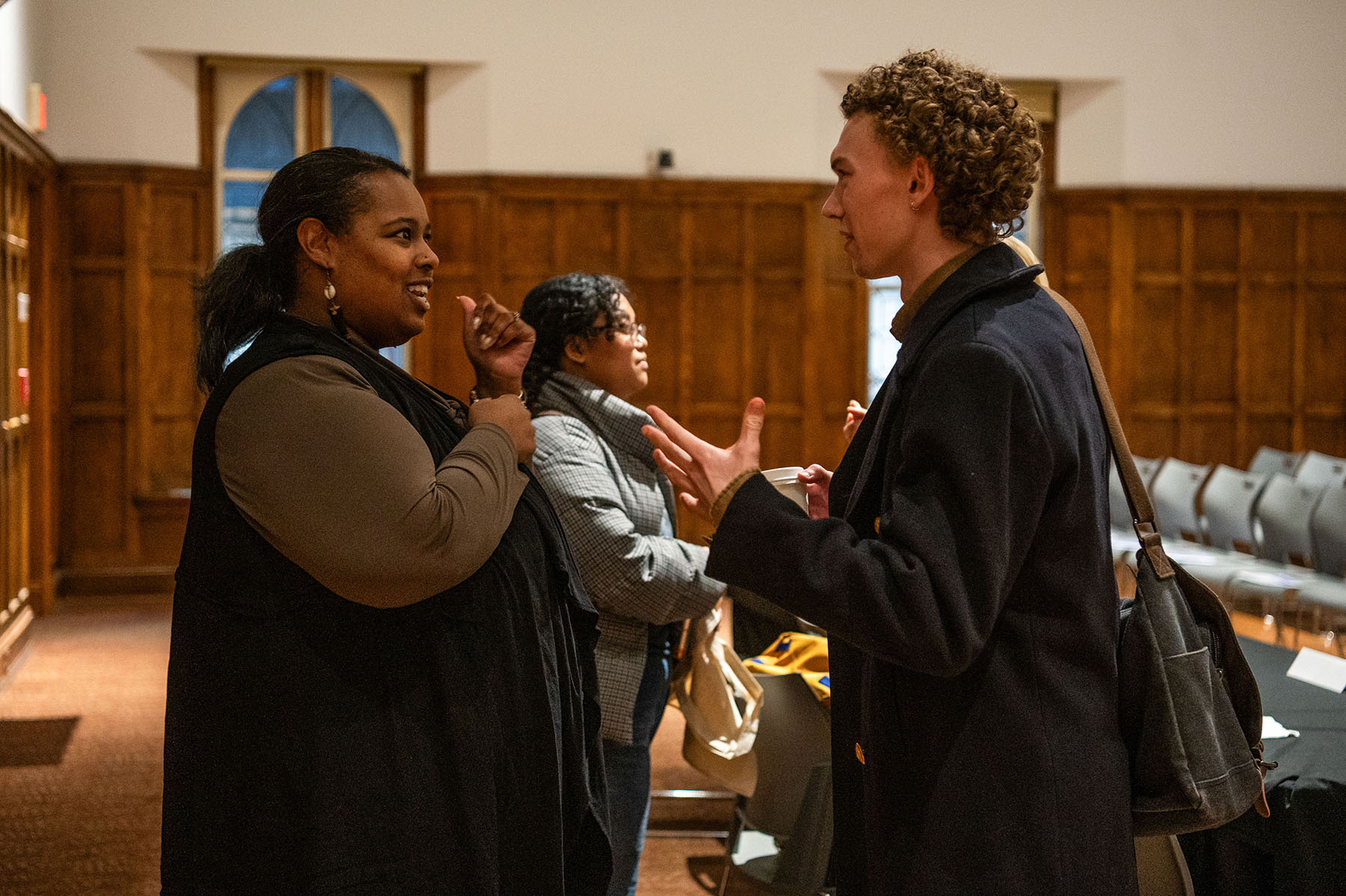Experts in Politics and Government Discuss the Country’s Post-Election Challenges
Now that the voters have spoken in the 2024 presidential election, what happened and where do we go from here? That was the theme of a day-long conference on the Vassar campus on November 22 organized by Vassar political science major Michelle Itkin ’26 and Associate Professor of Political Science Taneisha Means. Panelists included five Vassar faculty members and 12 others with expertise in politics and government. About 150 people, many of them from outside the Vassar community, attended the event in the Villard Room.
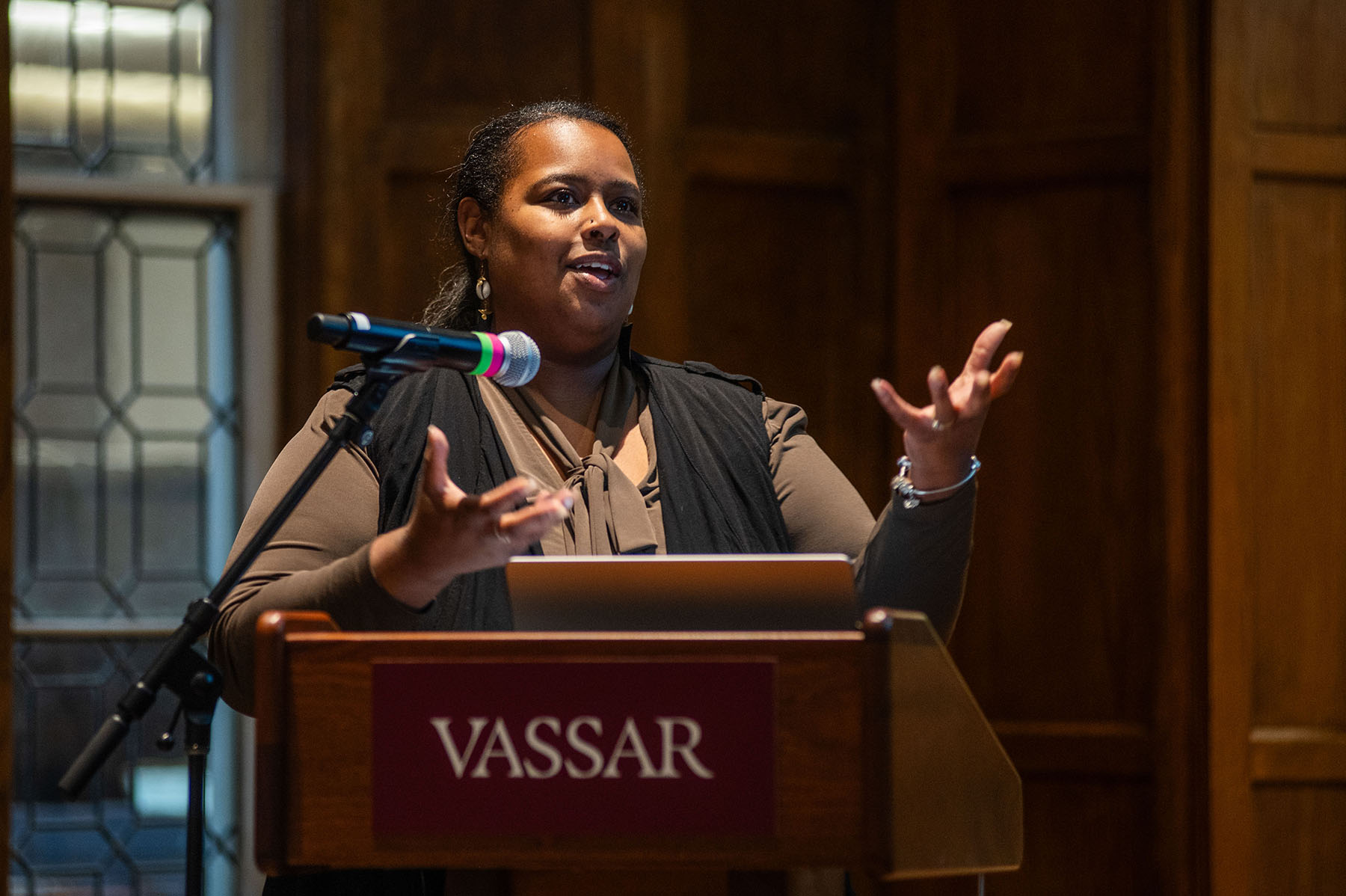
Following the conference, Means and Itkin said they were pleased with the turnout and with the optimism of many in attendance in spite of some of the obvious challenges the country faces. “I feel energized,” Means said. “More than 125 people signed up in advance and many more than that attended, and there were vibrant conversations across many ideologies.”
Itkin said she had hatched the idea for a post-election discussion on the campus last year as she began to realize the importance of an election in which she would be voting for the first time. “I knew this election would be critical, and Taneisha took my idea and expanded it into a full day,” she said. “After the election, I had this feeling of ‘I don’t know what to do,’ and I hope this conference helped us find some answers.”
Many of the panelists said they feared that the election of Donald J. Trump to the presidency would pose challenges for many in the country, but some speakers also noted that many voters were concerned about economic issues under the Biden-Harris administration, particularly higher prices on food and other consumer goods.
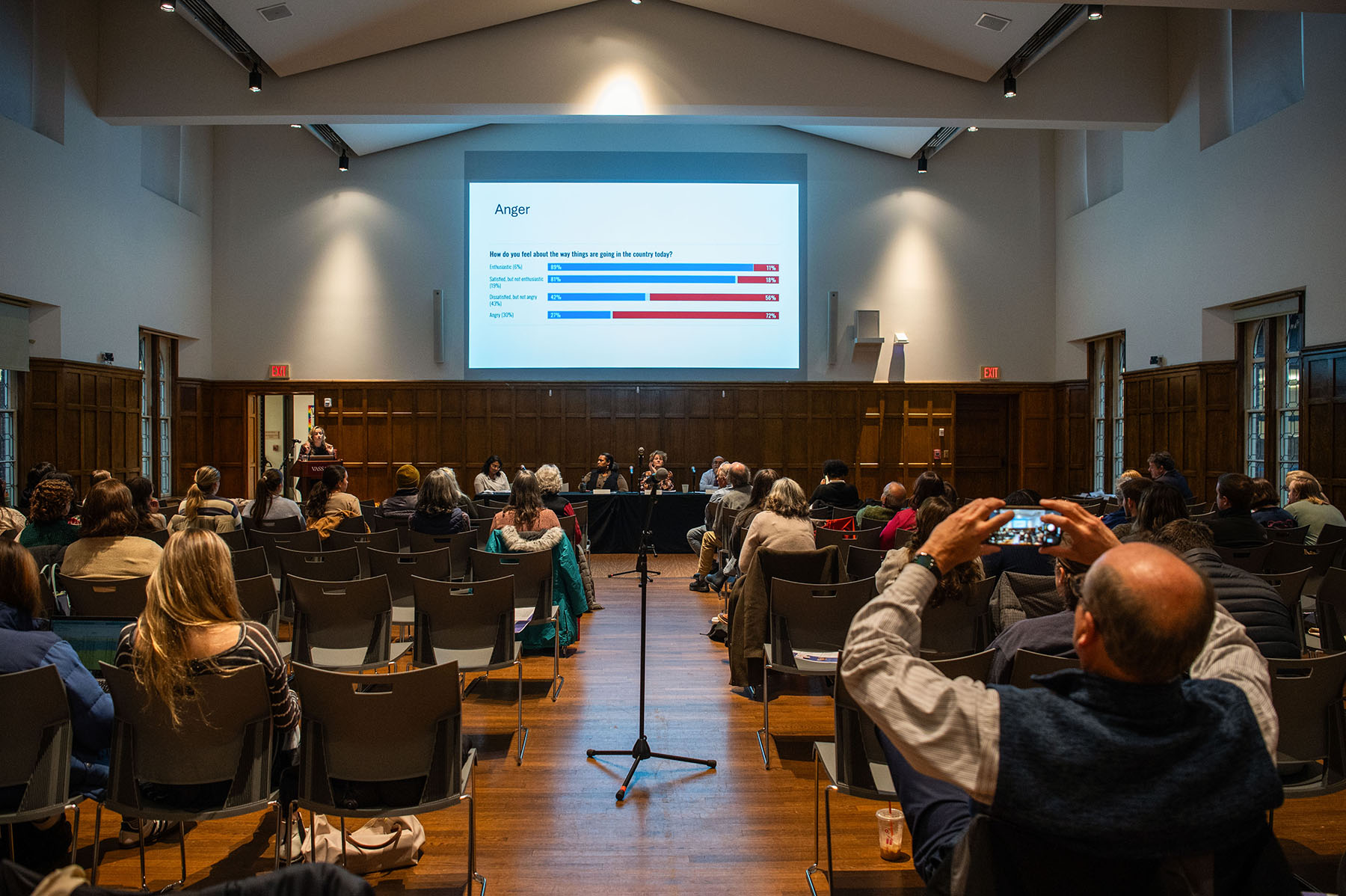
Assistant Professor of Greek and Roman Studies Curtis Dozier, who taught a course called Classical Rhetoric and the 2016 Presidential Campaign, said he believed Trump had won the election because he was skilled at generating anger and fear—two of humankind’s strongest emotions—among many in the electorate. “Aristotle used to talk about using emotions like fear and anger and righteous indignation to persuade people in the face of logic,” Dozier said. “Politics has always been a dirty business, and debates on the issues don’t always affect the outcome of elections.”
Town of Poughkeepsie Supervisor Rebecca Edwards, who is on leave from her position as a Vassar professor of history and first became involved in local politics following Trump’s first election in 2016, said she also saw some signs of hope in this year’s election results. “We are in a period of great division, and all elections are close,” Edwards said. “Democrats are holding onto many seats in state legislatures and in local elections, so it’s a moment to celebrate federalism as a complex system. We should not ignore the power of state and local officials. I work with a lot of people I know voted for Trump, and we get a lot done.”
Edwards reminded those in attendance that the nation has endured such challenges before. “Some may see [this election] as a radical departure from the norm and a sudden change, and that’s just not true,” Edwards said.
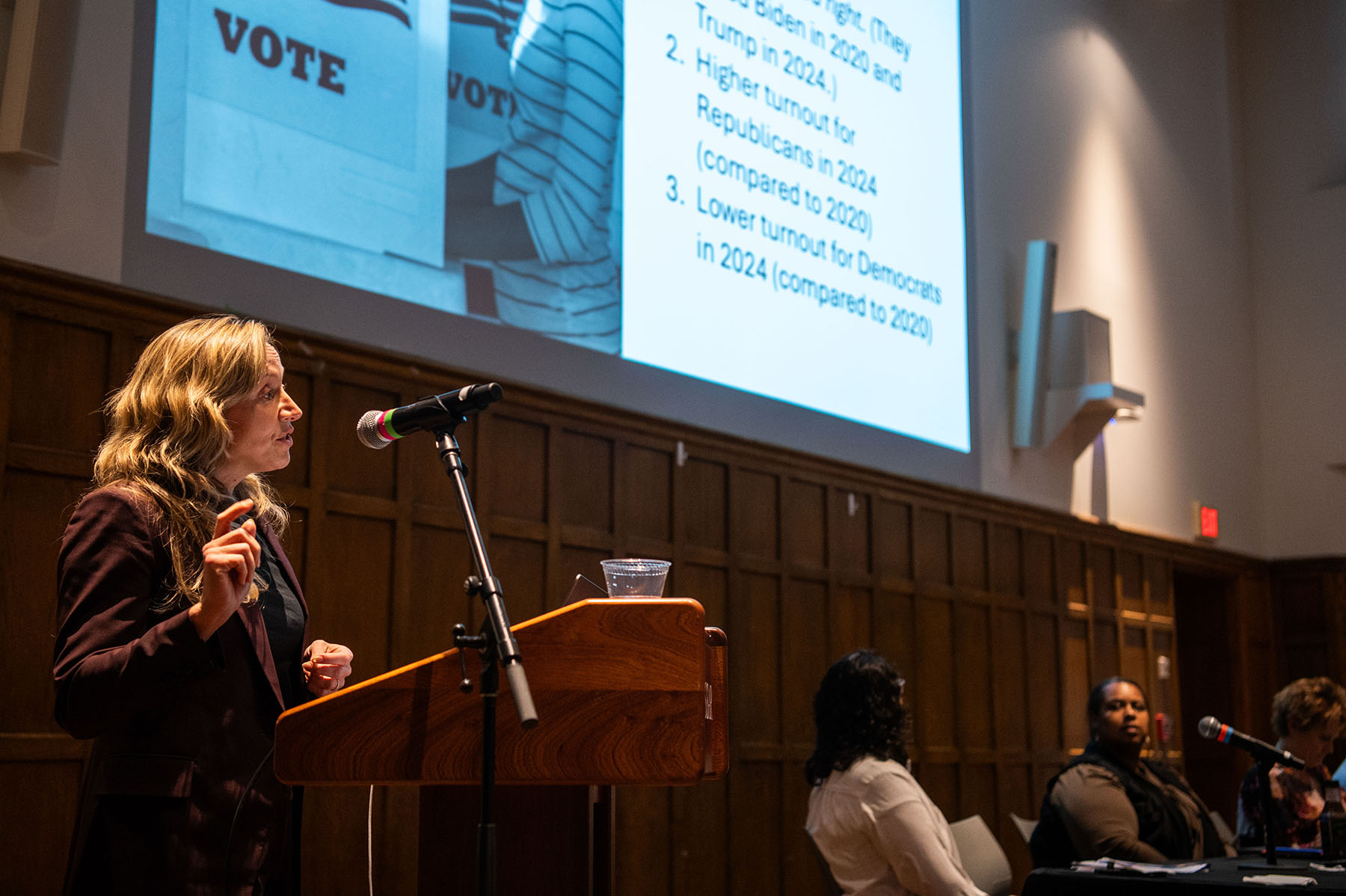
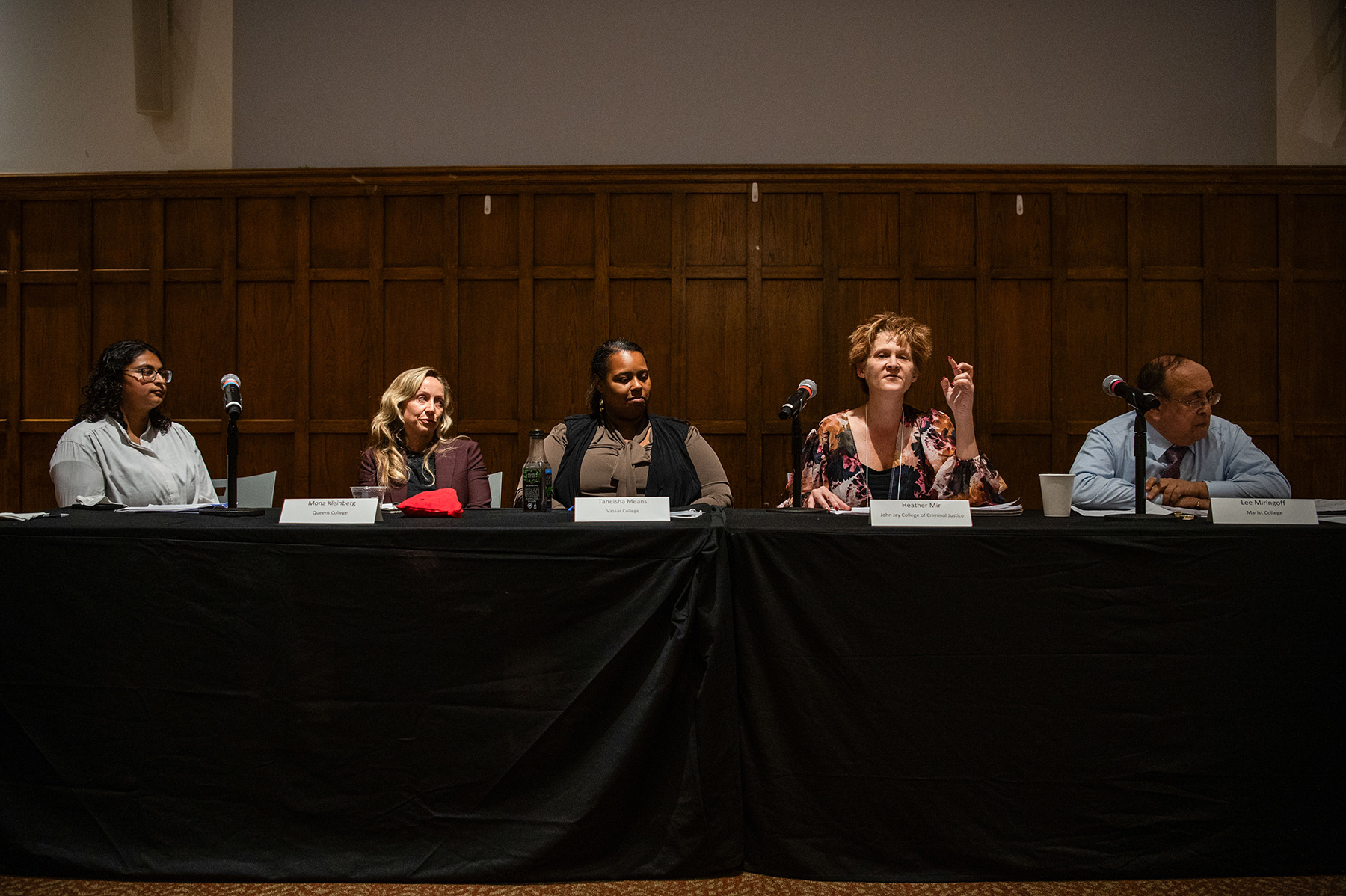
Other panelists in addition to Means, Edwards, and Dozier, were:
- Professor of Political Science Sidney Plotkin;
- Alfonso Lopez ’92, a seven-term member of the Virginia House of Delegates;
- Vassar Professor of Political Science Richard Born;
- Jim Twombly, Professor Emeritus of Political Science at Elmira College and Vice President of the New York State Political Science Association;
- Daniel Carmel, student organizer for the local grass-roots political organization For the Many;
- Damali Peterman, an attorney and author who is a globally recognized expert in conflict resolution;
- Gerald Benjamin, Professor Emeritus of Political Science at the State University of New York at New Paltz;
- Douglas Keith, founding editor of State Court Report, a publication of the Brennan Center for Justice at New York University School of Law;
- Simon Gilhooley, Associate Professor of Political Studies and Director of the Politics Program at Bard College;
- Adam Murphy ’10, Clinical Teaching Fellow at the New York University School of Law;
- Hon. Cassandra Johnson, Judge of the Surrogate’s Court of Queens County, NY;
- Mona Kleinberg, Assistant Professor of Political Science at the City University of New York;
- Heather Mir, former Visiting Professor of Political Science at Vassar and currently an instructor at John Jay School of Criminal Justice; and
- Lee Miringoff, co-founder and Director of the Marist Institute for Public Opinion.
Speaking in the final panel discussion of the day, Means and Miringoff both noted that Vice President Kamala Harris faced some daunting challenges in her short campaign. Means said there was evidence that recent laws and court rulings had suppressed the voting rights of minorities and thus played a role in the outcome.
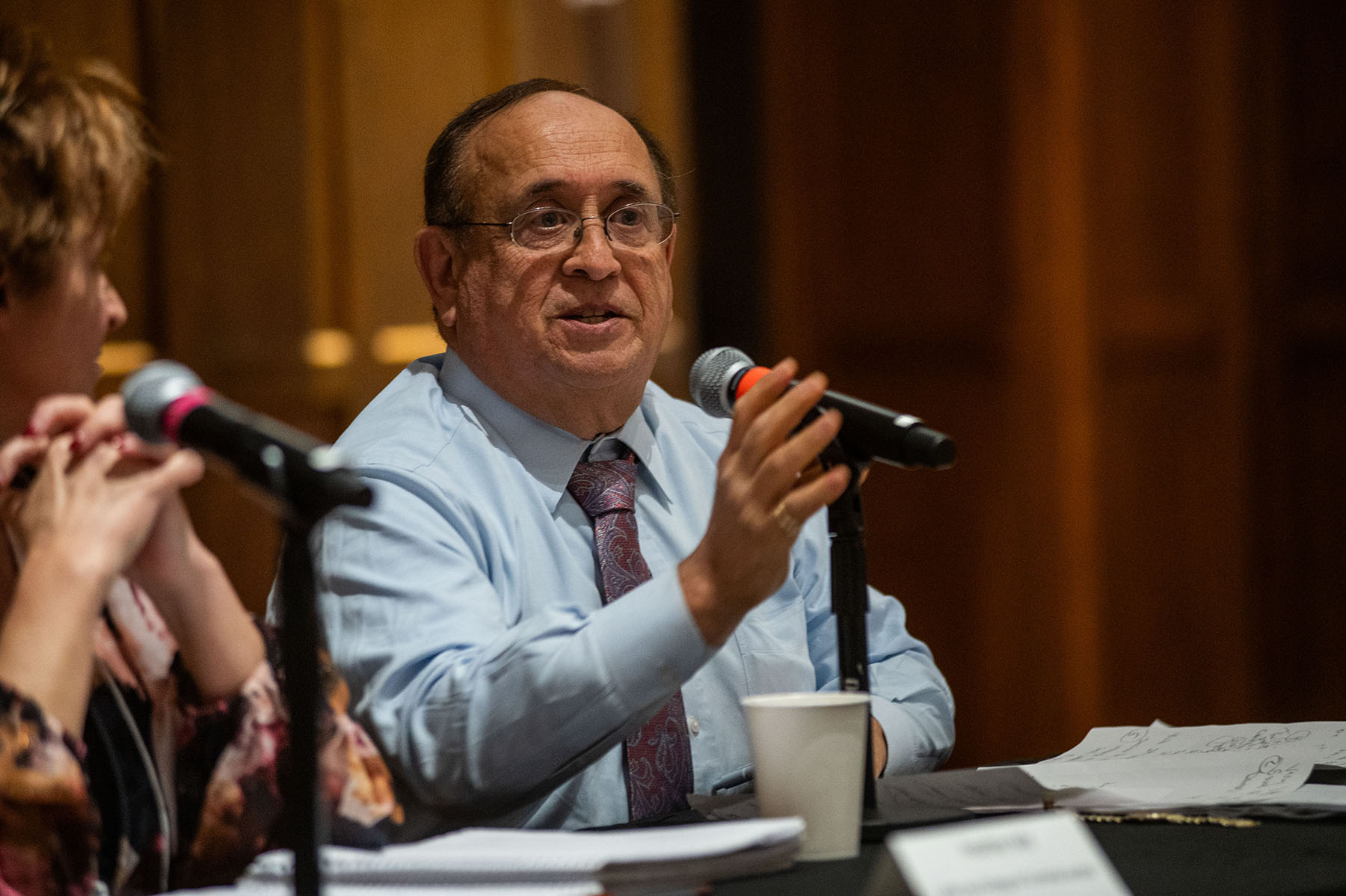
Miringoff said Harris had been hampered by her inability to distance herself from President Joe Biden, who had trailed Trump in the polls throughout the election cycle. “She always polled better than Biden,” Miringoff said, “but as his Vice President, she could not be disloyal. Every year lately, elections have been close, and in this one, where the electorate [was] angry, Trump tapped into that.”
One student who attended most of the conference, Erin Mutchek ’25, said hearing what the panelists had to say had softened her anxiety about the outcome of the election. “It was good to hear from people with so much experience in the political system about all the things we can do (on the state and local level),” said Mutchek, a computer science major from South Windsor, CT. “So yes, I’m a little more optimistic now.”
